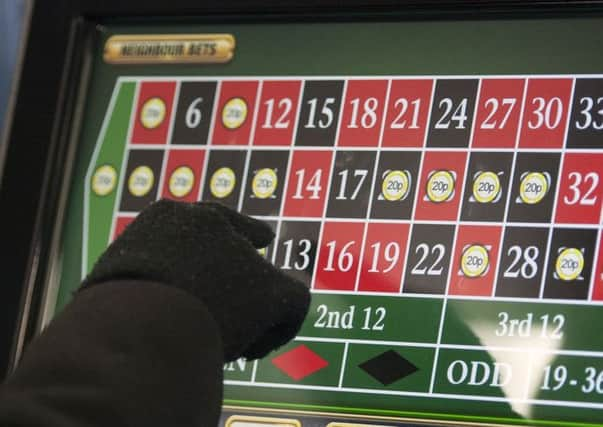£182m gambled on fixed odds betting machines in central Lancashire


According to figures from the Campaign for Fairer Gambling, nearly £34m of cash was inserted into 177 machines in the Preston, Chorley and South Ribble areas in the past 12 months, more than £182m was gambled in bets, and more than £6.7m was lost.
After the spotlight was shone on the terminals nationally, concerned council chiefs have met with industry bosses and campaign bodies over the problem, but have found their powers are limited.
Advertisement
Hide AdAdvertisement
Hide AdPreston Council has even looked at what it can do to restrict the number of betting shops in an area, but leaders say they have “hit a brick wall” as planning permission isn’t needed to change outlets such as takeaways and travel agents into bookmakers.
The issue means that compared to 12 months ago, there are now two more licences and three more games machines available to the public than there were this time last year.
Coun Drew Gale, chairman of the Communities Scrutiny Panel for Preston Council, where there are 87 FOBTs - the most in Central Lancashire - said the practice was “sinister”.
He said: “These fixed odd machines are preying on the financially vulnerable and the Government needs to pull its finger out as soon as possible. This isn’t a bet on the gee-gees or £10 on North End getting promotion, this is far more sinister. I believe that bookmakers are opening up shops with the specific aim of housing these machines.
Advertisement
Hide AdAdvertisement
Hide Ad“You can lose £100 in seconds and when you put your card in, people don’t realise how much they’re going through. It’s not like cash that you can see disappearing and there’s no safety net.
“It’s not even fun, there’s no skill. It’s not people who enjoy studying the form or looking at a player’s injuries, these are financially poor people who see it as their only way out. They go to pay day lenders and gamble with that money, they’re robbing Peter to pay Paul.”
Psychologist Professor Cary Cooper of Lancaster University, said: “If these machines are in a betting shop then you’ve already got a pre-disposed audience who like a flutter and all you’re doing is providing more instant gambling opportunities while people wait for the next horse race or dog race.
“People always like a quick hit and they think it’s just a pound here or there, so they can justify it, but they’re not thinking rationally. The house always wins. You also find that during austere times where the cost of living outstrips wages, even more people are looking to make a quick buck.”
Advertisement
Hide AdAdvertisement
Hide AdCoun Gale added: “Councils don’t have nearly enough power to do something about this issue, it has to be a national Government matter. It’s a public safety issue.”
Coun Mick Titherington, chairman of South Ribble Council’s scrutiny committee, said he was shocked by the figures. Chorley Council said it had not been made aware of a particular problem with FOTBs in the area, and officers do not have the power to make legislation regarding them.
Plans to give local authorities more power to regulate the use of the machines were voted down by MPs last year, after which David Cameron wrote to industry bosses outlining plans to tackle the problem. But proposals to cap losses at £250 and limit playing time to 30 minutes have been blasted for not going far enough.
Adrian Parkinson, consultant for pressure group the Campaign for Fairer Gambling, has also called for new restrictions to limit how much money people can bet using the machines. He said: “This year’s data is especially poignant because we took extra time to calculate the effect these machines are having on at risk or vulnerable gamblers.”
Advertisement
Hide AdAdvertisement
Hide AdA spokesman for Association of British Bookmakers said: “We have put responsible gambling at the heart of all we do, and over the last 12 months have been working closely with the Government and Gambling Commission on this agenda. Since January, all gaming machine players have to choose whether to set a limit or not on the amount they spend or time they play for.”